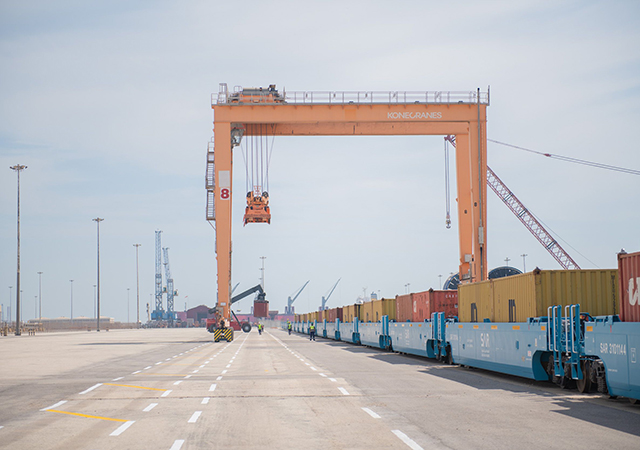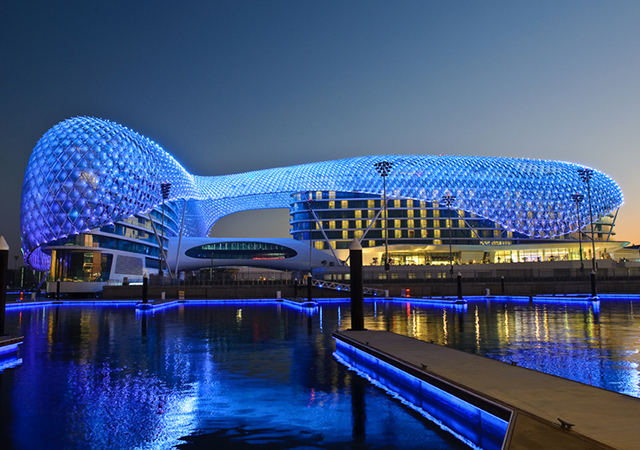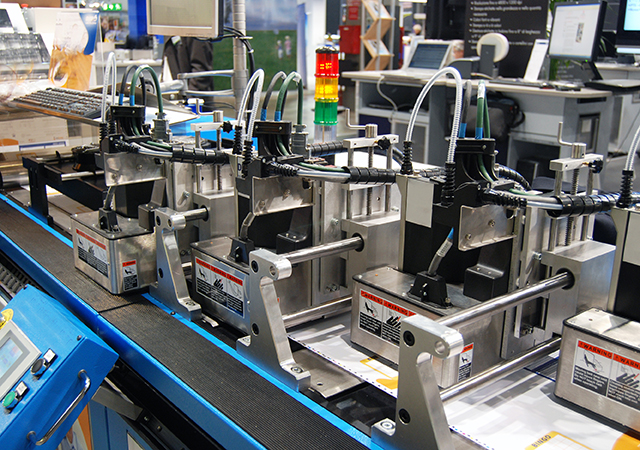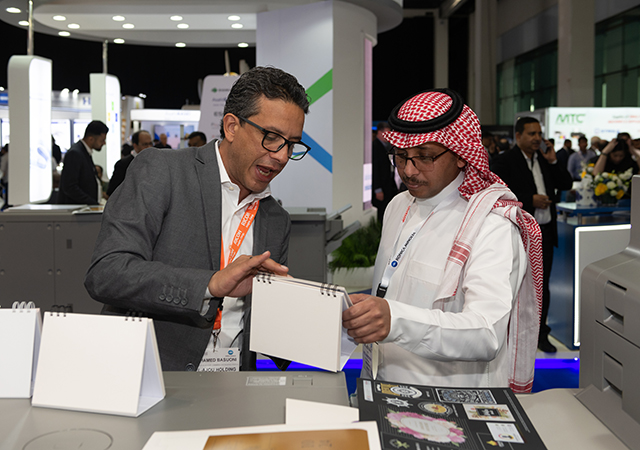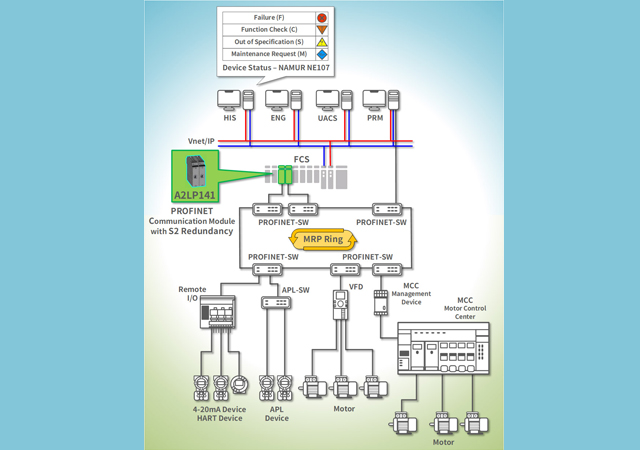
The Saudi economy is attaining maturity requiring a new objective of sustainability in most sectors. The GDP growth continues to drive consumption and improve opportunities for domestic manufacturing activities, the private ones of which are dominated by small and medium enterprises.
The big national industrial corporations are pressing ahead with expansions and new projects and the industrial infrastructure is being boosted. The Kingdom of Saudi Arabia is now a developed nation by any definition, heavily dependent upon world markets, and can no longer depend on previous policy measures of import substitution and self-sufficiency to further develop its economy.
However, little is mentioned in the Seventh Plan announced mid-2000 or the more recent 2001 budget statements regarding sustainability, which should be the driving force in the new millennium.
Nevertheless, with high oil prices throughout 2000, Saudi Arabia has been presented a new opportunity to move toward sustainability, thereby increasing its competitiveness as it seeks to join the World Trade Organisation (WTO) and the trend toward globalisation.
The Kingdom's economy is still very much dependent on oil revenues and resulting public sector disbursement of funds. Meanwhile, the world oil price depends on macro exogenous factors, affected by weather, civil strife and general economic conditions, as well as normal demand/supply relationships. Thus, predicting the oil price is difficult, with statistical analyses indicating a most-likely long-term price range of $12-22, and price below or above this band less likely over any extended period. Therefore, the recent high oil price is subject to downward pressure from a statistical basis. Higher oil prices transfer income from oil-importing economies to oil exporters. This reduces the spending power of consumers and hence growth in output in oil-importing economies lessening demand for oil. The actual net impact on global demand depends on whether oil exporters save their windfall or spend it on imports.
Although a member of Opec (Organisation of Petroleum Exporting Countries), Saudi Arabia's oil prices are heavily determined by large-volume term contracts, leading to less elasticity for upward moving prices and more elasticity for downward moving prices, due to its large share estimated at 11 per cent of total world oil production. The GCC together accounts for nearly 45 per cent of proven oil reserves, and about 15 per cent of reserves of natural gas. Looking forward, however, the greater role of spot and futures prices in the global market, and less potential role for large volume term contracts, provide opportunity for Saudi Arabia to strengthen its role in obtaining improved prices over time, should it choose to change its pricing strategy.
Additionally, through its large reserve capacity, Saudi Arabia has leveraged its importance in the world economy, as evidenced in 2000 where the oil price exceeded the Opec-targeted $22-28 range, when it opened the taps to sustain growth in Western economies gaining international political capital. Together with the recent establishment of the Saudi Arabia General Investment Authority (Sagia) to encourage and facilitate Foreign Direct Investment (FDI) and improve its investment climate, Saudi Arabia should be able to increase its share of FDI over time. The gas, utilities and telecommunications sectors seem to be of most interest to potential international investors to date, with great opportunity upcoming.
Developing a balanced budget for 2001, the Kingdom has allocated approximately $10 billion for the construction of schools, hospitals, roads, water and sewage facilities. Together with higher anticipated private sector investment in commerce and industry, Saudi Arabia now provides the platform for a higher rate of economic growth than has occurred in recent years.
The Kingdom is emphasising Human Resource Development (HRD) at 25 per cent of the 2001 budget, having the largest aggregate expenditure and 8.15 per cent growth. Health services and social development comes next with 11 per cent of the budget and 10.05 per cent growth, then municipal services and water at 4 per cent of the budget and 22.4 per cent growth. Meanwhile, utilities, infrastructure and economic resource development are now left more to the private sector. Government budget allocations realistically relate to high demographic growth, currently estimated at 3.85 per cent, placing a great burden on government resources. This does not leave much room for paying down debt, now estimated at 108 per cent of GDP, or developing utilities and environmental enhancement required for expanding industrialisation.
Large national corporations are not holding back, as indicated by Saudi Aramco and Saudi Basic Industries Corporation (Sabic), expanding capacity in hydrocarbon projects, with contracts and bids under way. Examples for Aramco are the $1.3-billion Haradh and $350-million gas/oil separation (GOSP) development, the planned refinery upgrading at Ras Tanura and additional gas distribution facilities. Sabic is involved in a new grassroots olefins project estimated at $2 billion and several affiliates are planning de-bottlenecking projects in the chemicals and fertiliser divisions. Meanwhile, the Royal Commission for Jubail and Yanbu is expanding utility facilities and new industrial infrastructure projects to keep pace with expected industrial development.
BURDEN OF SOCIAL COSTS
Saudi Arabia's indigenous population is set to double over the next 20 years, posing a serious challenge to develop jobs and maintain acceptable income levels for citizens. Only recently have government officials referred to this phenomena as a challenge, although realistically it could better be described as a major problem.
Saudi planning Minister Khaled Al-Gosaibi, a member of the Kingdom's policy-making Supreme Economic Council points to "the infrastructure requirements of a rapidly growing population" as well as the need to expand the labour market.
Crown Prince Abdullah, chairman of the Supreme Economic Council, indicates: "We cannot expect the government to continue to meet huge infrastructure investment requirements while also funding priority activities in health, education and other social sectors. Privatisation and opening doors to foreign investment is the most viable option to meet this challenge".
Saudi officials have come to realise that other countries are reforming at a faster pace, so standing still is falling behind, and not a viable option. There seems to be a greater sense of urgency under the new millennium than before.
Officials see the future role of government shifting to establishing a conducive institutional, legal and regulatory framework in which foreign investors and private sector entrepreneurs can develop industry and jobs meeting the national objective of providing opportunities for employment and improved income levels. Reducing subsidies and privatisation are pillars of this new approach. However, citizens view such moves as unfair, reducing their disposal incomes and income source from sponsorship and sole distributorship agreements.
FOREIGN INVESTMENT CLIMATE
Saudi Arabia first announced its plan to change the foreign investment law in 1997, so it has taken more than three years to move the process through the system. In fact, it took the formation of the Supreme Economic Council to complete the task in a three-month period by forcing decisions through the system. Together with last year's announcements regarding changes in sponsorship rules, allowing expatriates to buy real estate / property and stocks, the Kingdom feels it can now approach the World Trade Organisation (WTO) with a stronger hand in its negotiations for entry. However, several WTO members feel the Kingdom still does not offer a level playing field for foreign investors. Much of this is related to systems for settling disputes and providing more transparency in investment and financial dealings, as well as uncertainty over real changes in sponsorship. A recent example of foreign uncertainty is the breakdown in negotiations between Saudi Telecommunications Company (STC) and several short-listed and hoped-for international strategic partners, due to a lack of transparency in STC's accounts, exclusive rights and extent of management control to be shared.
Studies following WTO membership accession indicate additional investment funds quickly follow. However, many unsuccessful years of negotiation by Saudi Arabia is seen by active WTO members as indication of slow decision-making capability, further inhibiting planned foreign direct investment (FDI).
Additionally, FDI facilitation requires readily available information about the host country, full access to regional and international data, with transparency of domestic public companies for foreign investors to assess market potential and competition. An examination of most information sources and comparative data on countries in the Middle East in general, and the Kingdom in particular, indicate more data blanks than inputs, especially for recent years.
Meanwhile, most developed countries report data needed for investment decisions quarterly, monthly, or even days after compiling the statistic, while it is annually, and a couple of years later for much data in Saudi Arabia and the region. Again, country investment studies indicate a lack of timely data as the single most inhibitor in attracting FDI. After all, this is the information age!
Thus, the Kingdom faces a dilemma in that moves to keep competitive on the international front are seen by domestic businessmen and citizens as diluting their control and potential future earnings from foreign companies doing business in the country. However, manufacturers with export potential, along with oil and petrochemicals, understand that joining the WTO is a necessary condition for growth and development of the economy. There are counter-forces under way between traditionalists and futurists in the business community, which seemingly buried beneath the surface, seethe with discontent on government interventions seen to impact on continued and/or future earning potential. Whether such discontent surfaces to slow government movement in fostering foreign investment is not yet assessable.
Another factor slowing foreign investment is awaiting transparent details of a new Health Insurance Programme. Most international investors understand that health-care costs are a major factor in investment decisions. Until the new Health Insurance Programme is clarified, many foreign investors may choose to defer decisions on investment in Saudi Arabia.
Given such a wealth of natural resources, geographical location advantages with well-developed infrastructure, open markets and ease of currency convertibility, Saudi Arabia should be able to significantly improve its investment climate. The change required to attain greater competitive advantage in attracting FDI, however, requires immediate additional resources in collection and timely distribution of more accurate transparent information, as well as more rapid decision taking. This is not yet evidenced in planned public and private resource commitments.
GROWTH OPPORTUNITIES
The Seventh Development Plan (2001-2005) establishes growth objectives, seemingly based more on ministerial goals rather than historical performance criteria. Once announced, tremendous public relation efforts are expended to indicate growth is occurring as planned. Foreign and domestic investors should take caution, however, as a change in private-sector growth may vary considerably by select sectors as indicated in the table.
To illustrate significant current differences between NP and HP projections, the construction sector has not exhibited high growth in spite of very high oil prices during 2000, indicating government's higher priority to pay down debt (estimated currently at 108 per cent of GDP) than developing significant construction activity through new projects. It should be noted, however, there is historically a two- to three-year time lag between increased oil prices and resulting project expenditures. Similarly, there is little appreciation in the NP for long lead-time requirements in developing mineral resources.
On the more positive side, GDP growth continues to drive trade and consumption activities, while improving domestic manufacturing opportunities. Private sector manufacturing is dominated by small and medium Enterprises (SME), being less capital-intensive with greater job creation capacity more fitting with NP objectives and planned resource allocations. Together with a fast population growth and resulting household formation, the economy is expected to maintain its positive growth, although far less than optimum due to excessive consumption expenditures relative to productive investment. Domestic productive investment has been limited to date due to high outflows of the Kingdom's private investment and low inflows of FDI, both following higher return potential elsewhere. If provided improved information and analyses of sector opportunities to domestic and foreign investors, this can be reversed.
INVESTMENT OPPORTUNITY
Greater investment opportunities exist in sectors increasing faster than population growth. Sector profiles with higher than population growths are:
With a few large firms in three of the four fast-growing sectors, the manufacturing sector provides the greatest opportunity for domestic and foreign investors with numerous SMEs in the sector. However, opportunities in the remaining slower growth sectors depend greatly on a shift to the private sector through privatisation and opening to competition in providing goods, services and outsourcing non-core activities.
Sector profiles with slower than population growths are:
In comparison with the fast-growing sectors , the slower growing ones are dominated by SMEs. Even in those currently public dominated or mixed, there is opportunity through privatisation and opening these sectors to competition in providing goods, services and outsourcing non-core activities. However, for slower growing sectors, more care must be given in selecting potential activities and projects for domestic and foreign financing.
SMEs Select Sector opportunities are:
SMEs Select Sector potential difficulties are:
Thus, other than the gas sector, domestic and foreign investors must concentrate on viable faster growing sectors where SMEs have greater opportunities, on average. On the other hand, SMEs must be highly selective in slower growing sectors where many larger firms are highly competitive, on average.
LEARNING THROUGH EXPERIENCE
Government, Saudi chambers and other concerned parties have been enthusiastic in fostering new ventures since they are viewed as having great expectations for diversification of the economy and not as reliant on oil, gas and petrochemicals. However, it has been found by domestic investors to be easier to start a business in the service/wholesale/retail sectors compared with manufacturing, due to smaller initial investment required and earlier cash flow. Thus a disproportionate number of new ventures actually do not satisfy the diversification objective.
According to a recent TEB study, the rate of new ventures attained its highest level during the 1990s at 34 per 1,000 in 1995, and has consistently declined since (number of newly incorporated enterprises during a certain period divided by the total number of businesses at the end of that period). These data are verification of the economy attaining maturity. The rate has dropped from 46 per thousand in the 1980s to 29 per 1,000 in the 1990s. On the other hand, the rate of companies being closed down is rising, due to lack of adequate planning and follow-through management and market analysis, among others. The situation will reach crises levels when and if the rate of closeouts exceed the rate of start-ups.
An important factor for the declining rate of start-ups is the increasing amount of required capital. To illustrate, in the Transport and Storage sector, compared by decade, average capital for start-ups has increased from SR 1.02 million in 1950-59 to SR 5.0 million in 1960-69, to SR 21.144 million in 1970-79 and to SR 26.639 million in 1980-89. Meanwhile, for the same sector and each decade, average manpower per start-up has changed as follows: 19 to 41 to 108, then falling to 51. Thus greater substitution of capital for labor is now the trend. Thus projections on new jobs based on historical employment creation trends may be misleading. Dramatic progress in technology has raised equipment costs and initial investment required for recent start-ups. Even the service, wholesale distribution and retail industries have been seriously affected by the rising cost of land, buildings and rent.
Government and Saudi Chambers have begun to organise seminars with an emphasis on business planning, marketing and venture operations. However, the idea of select sector priority fostering of new ventures with greater growth potential versus "me too" traditions has not yet caught on. A fundamental problem is the lack of skilled venture capitalists willing to invest capital having experience in mentoring aspiring new venture entrepreneurs. Another is the long gestation period in the Kingdom before a new venture can approach the capital markets (issue stocks). Perhaps the Government and Chambers should first identify incubating venture capitalists, secure and train human resources that can foster new ventures, before attempting to directly assist new venture entrepreneurs.
Helping new ventures appropriately and putting them on a growth path requires affiliates, tie-ups in technology and marketing, plus professionals from diverse fields to be readily available in the Kingdom. Institutions, regulations and laws must be made more favorable, transparent and equally applied. Nevertheless, it is the duty of new entrepreneurs to make far more thorough marketing and business plans than they have traditionally done, plus pay minute attention to the execution of those plans. It is no longer advisable to follow the "me too" business culture in the Kingdom in a mature economy.
In order to increase the rate of inauguration of new ventures, as well as improve the quality and quantity of new ventures, training and education of entrepreneurs must be enhanced. It is necessary to begin much earlier, educating elementary and middle school students to acquire a basis for becoming entrepreneurs. Such training requires a greater multi-culture exposure from primary school forward in order to become "acculturated" in entrepreneurial behavior.
Increasingly in the US, employer groups representing the banking, electronic assembly, hospitality, retail, and restaurant sectors are partnering with public agencies to support pre-employment training programmes directed toward a designated industry sector. In addition to activities of specific sectors, several individual employers have designed their own short-term training programmes. A similar concentrated effort is required in the Kingdom to redress low productivity and employment due to lack of trained nationals.
What characterises high growth in productivity in the US is their underlying philosophy: any job is a good job and that the best way to succeed in the labour market is by joining it, developing work habits and skills on the job rather than in a classroom. Perhaps the Kingdom should emulate this characteristic.
A technology-driven world means that entrepreneurs and workers must continually upgrade their knowledge and skills. Information and skill acquisition must be far more responsive to the rapidity of these changes.
Without a National Productivity Centre to collect, analyse and distribute information on job and skill requirements by Select Sectors, it may prove difficult to sustain competitiveness in the Kingdom relative to most countries having such an institution.
DEBOTTLENECK FINANCE
Development banks in the GCC have traditionally depended on governments as a source for their funds. Most are facing difficulties in replenishing funds due to increasing government debt and the social overhead. Additionally, when joining the WTO, interest-free loans will not be allowable as considered subsidies under border price calculations for equitable trade rules.
The GCC, as maturing economies, should create a "family" of development banks offering a market basket of securities thereby attracting available international capital. This would alleviate governments of the burden of funding development banks while spreading the risk for potential investors.
Creating a more liquid capital market will enable entrepreneurs of the region to obtain long-term financing for expanding business and new start-ups. A market basket of different type development securities, that is industrial, housing, agriculture, export/import, etc, would allow spreading risk across sectors, thus lowering over-all financing costs, as opposed to sector- or country-specific securities.
Pre-conditions are developing property title rights and the ability for financial institutions to hold first mortgages on industrial properties, houses, land and capital goods as security for securitisation. A strong collateral security system decreases transaction risks and thus further reduces the financing cost.
Regional financing institutions are at the forefront of worldwide efforts to develop Islamic financing techniques such as conditional sale arrangements of "ijara" structures, among others. International Islamic review boards have been established. International lenders are also familiarising themselves with Islamic financing techniques. Such options should be considered in developing this new market basket of development securities for sustainable development.
The GCC governments' new focus on private sector development and increased efficiency in all sectors provides an immediate mandate for privatisation of GCC development banks through securitisation. Only a family of development bank securities can obtain sufficient scale and interest in international financial markets to attract capital required moving sectors forward.
Substitution of new capital for labour in the GCC will significantly reduce social overhead costs currently burdening governments.
Worldwide, securities are providing an increasing share of total investment capital at the expense of traditional financing institutions. To not miss out on this world structural shift in financing, GCC development banks should be privatised and securitised. By providing a market basket of development securities, least-cost funds will be readily available, thus funding will not remain as a bottleneck to further development.
GROWTH & SUSTAINABILITY
The new economic order can be best characterised as open flows of information, transparency, deregulation, privatisation, entrepreneurship and greater risk-taking. The Internet universalises available information and opportunities to enter new markets, no matter where they may be.
Entrepreneurial companies can build their skills, strategise, organise and develop required financial, technical and marketing resources worldwide. New entrepreneurs must relish insecurity rather than security, alliance rather than allegiance, risk-taking instead of constant government approvals and support, compressing time as a vital competitive advantage, and a sense of urgency in adaptation to new ideas and markets. Outsourcing and contracting non-essential services allows concentration on efficiency and new opportunities. Looking onto the horizon, relying on his discoveries, the modern entrepreneur can use his insight and experience to navigate out of chaos. Adopting this culture can assure sustainable development.
Saudi Arabia now has a mature economy, but has perhaps lost some sense of urgency found in its youth. Now is the time to assure there is no fixed hierarchy, no excess bureaucracy and a sense that it is improved performance that counts, not what has been achieved in the past. Information, resources and people must flow more freely.
Providing more detailed, accurate and timely information on sectors of the economy requires far more resources than currently allocated by public or private sectors. Small security markets in the region limit FDI, domestic and development funding.
Competing regions are achieving their goals of strategic positioning through mergers and acquisitions, inter-firm agreements and/or alliances. A subset of such agreements involves technology-related activities as a response to increased knowledge-intensity of production, shortening of product cycles and a need to keep up with technological frontiers.
Change in regulatory regimes is a necessary condition creating a more favourable environment for foreign investments. Together with readily available comparative or benchmark data, foreign investors can invest in the highest perceived opportunities within the GCC fitting today's globalisation strategies.
Examining the Kingdom's higher-growth sectors versus lower-growth sectors indicates that, in spite of a wealth of natural resources, geographical location advantages with well-developed infrastructure, open markets and ease of currency convertibility, it will be somewhat challenging to provide sustainable growth in select sectors. It is a lack of quality information and concurrence in planned and historical projections required to access FDI, technology and marketing investments, without further shifts in resource allocations, that inhibits this attainment.
The Economic Intelligence Unit (EIU), associated with The Economist in London, provides current country e-business-readiness rankings of the largest 60 economies. With a top possible score of 10, the US ranks #1 with a score of 8.8, with countries in the region included in the ranking as follows: Israel #20 at 7.8; Turkey #39 at 5.5+; Saudi Arabia #40 at 5.5; Egypt #49 at 4.6; and Iran #58 at 3.3. Given the new economy with emphasis on globalisation facilitated through e-business opportunities, the Kingdom faces many interesting challenges in privatisation of telecommunications, electricity and other development needs to achieve and sustain industrial development.



